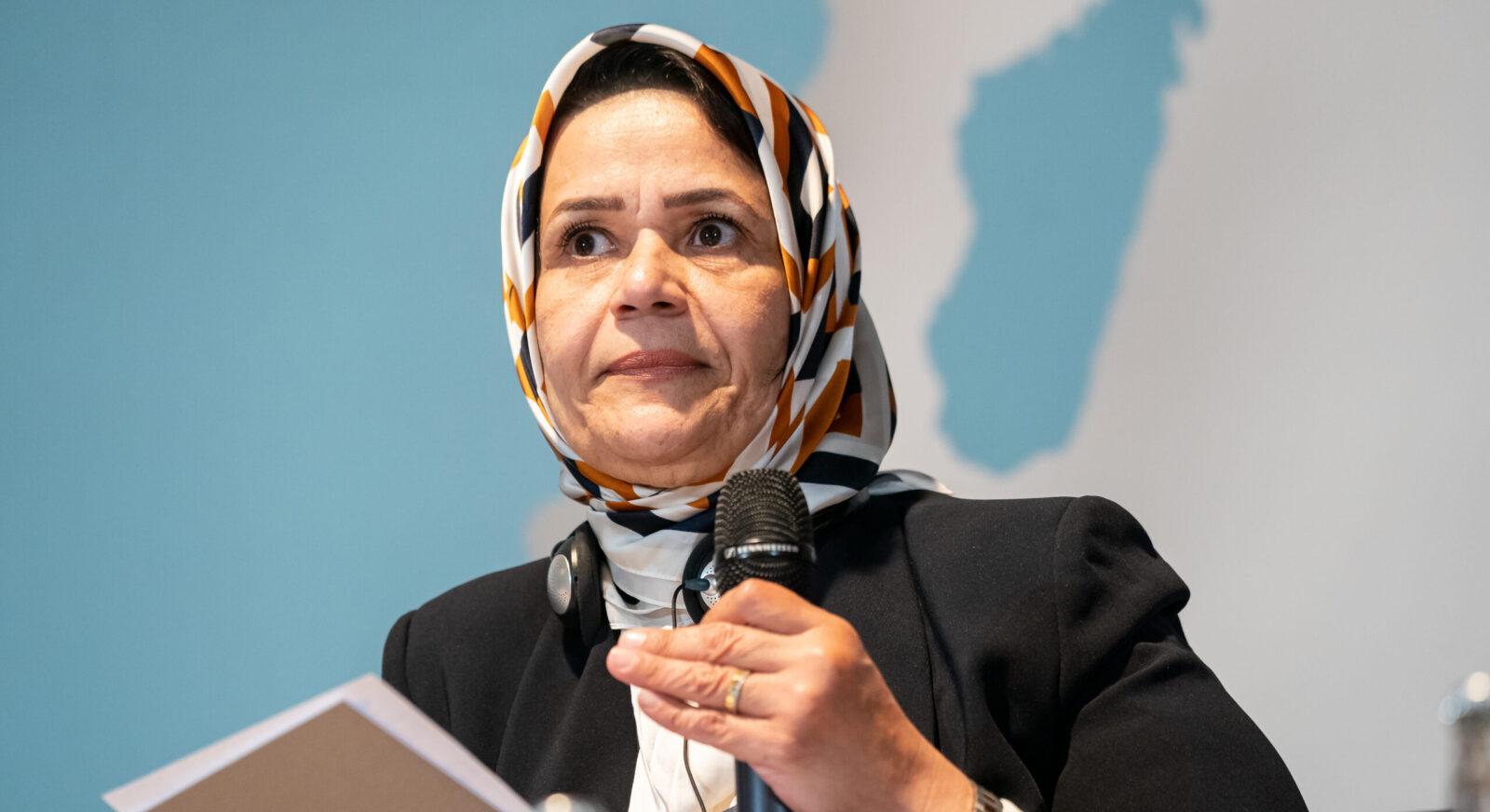The United Nations Women’s Peace and Humanitarian Fund (WPHF) is supporting local women’s organizations in Libya working to advance women’s leadership in humanitarian response, ensure the protection of women and girls, and promote their participation in peacebuilding and recovery efforts.
What’s happening in Libya?
Libya has been grappling with political and economic instability for over a decade, with rival political coalitions and armed militias competing for power. With support from the Libyan National Army (LNA), the Government of National Stability rules eastern Libya, while the Government of National Unity controls the western region of the country. Presidential and parliamentary elections were set to occur in December 2021 under the guidance of the United Nations Support Mission in Libya (UNSMIL), but they were postponed indefinitely due to disagreements over the electoral framework.
In September 2023, storm Daniel and heavy rains caused flash floods, dam collapses near the port city of Derna, and overflowing rivers in five provinces in eastern Libya. The Office for the Coordination of Humanitarian Affairs (OCHA) estimates that the catastrophe affected around 250,000 people, killing over 5,800 people and displacing more than 44,000.
In response, WPHF launched an emergency funding appeal in Libya for up to 3.5 million USD to support local women’s organizations leading the humanitarian response to the floods and addressing the urgent needs of women and girls on the ground.
What’s the situation for women and girls in Libya?
Women and girls have been disproportionately affected by the broader effects of Libya’s armed conflict, placing them at increased risk of poverty, discrimination and abuse, and severely limiting their access to protection and health services. Gender-based violence (GBV) remains vastly underreported due to factors ranging from societal and legal hurdles to the lack of trust in state institutions, such as the police and judiciary entities, which have previously opposed the passing of legislation in favor of women’s rights. Inadequate laws and services also prevent female victims of violence from reporting rape and domestic abuse, leaving them without an appropriate redress.
Numerous documents have drawn attention the dire situation of women and girls across the country. The report of the Independent Fact-Finding Mission on Libya, for instance, noted recurrent abuses by members of armed groups and militias of women and girls on the streets, at checkpoints, or in their neighborhoods, feeding a climate of fear and hindering women’s safe participation in public life. Another report by the UN Special Rapporteur on violence against women and girls underscores the increase in femicides and other forms of violence in the public and private sphere, including sexual harassment, rape, torture and arbitrary detention, as the culture of impunity continues to prevail.
Why is it important to support local women’s organizations across Libya?
In the face of growing political instability, widespread insecurity, and the absence of a national disaster preparedness and response plan, women’s civil society is playing a critical role in implementing humanitarian, development, and peacebuilding programs across Libya, despite being very ill-represented in the political sphere and labor market. Channeling funds to grassroots women’s organizations will strengthen their contribution to the country’s political reconciliation process, especially calling for elections; foster local development in conflict and disaster-affected areas; and position frontline women and girls as peace brokers within their local communities.
WPHF in Libya
WPHF is channeling timely and flexible funding to local women’s civil society organizations in Libya leading interventions that contribute to the following WPHF impact areas:
- Under its Impact Area 3 (Humanitarian and Crisis Response), WPHF is supporting civil society working to advance women’s participation and leadership in humanitarian and crisis response and planning, including in the response and recovery to the floods, in support of crisis-affected women and girls from marginalized communities across the country.
- Under its Impact Area 5 (Protection of Women and Girls), WPHF is supporting civil society working to improve the access of crisis-affected women and girls to GBV prevention and response services, mental health and psychosocial support, and life-saving health solutions.
- Under its Impact Area 6 (Peacebuilding and Recovery), WPHF is supporting women civil society working to increase the socio-economic recovery and political participation of vulnerable women and girls in peacebuilding contexts.
